2020 Faculty Summer Reading and Podcast List
Paul Brest, Former Dean and Professor Emeritus, and Lawrence Friedman, Marion Rice Kirkwood Professor of Law, recommend The Splendid and the Vile by Eric Larson
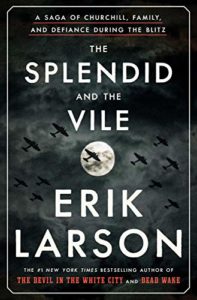
“Eric Larson, The Splendid and the Vile, may be the most engaging and readable of the many Churchill biographies. It covers 1940-41–the years of the blitz and Churchill’s frustrating but ultimately successful efforts to get support from the U.S. The story is told mainly from Churchill’s perspective, but also with perspectives from his family, advisors and cabinet members, Americans, and the German leadership. The broad sweep of events is intermingled with intimate personal detail, much of it gleaned from contemporary diaries. It is particularly poignant to read about England’s great, unifying, heroic leadership at a time when the U.S. is facing the multiple crises of a pandemic, racial injustice, and huge economic insecurity with the antithesis of a national leader,” says Brest.
Michele Dauber, Frederick I. Richman Professor of Law, and Deborah Hensler, Judge John W. Ford Professor of Dispute Resolution and Director of Law and Policy Lab, recommend The Fire Next Time by James Baldwin
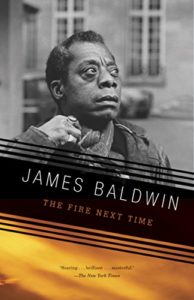
From the publishers: A national bestseller when it first appeared in 1963, The Fire Next Time galvanized the nation and gave passionate voice to the emerging civil rights movement. At once a powerful evocation of James Baldwin’s early life in Harlem and a disturbing examination of the consequences of racial injustice, the book is an intensely personal and provocative document. It consists of two “letters,” written on the occasion of the centennial of the Emancipation Proclamation, that exhort Americans, both black and white, to attack the terrible legacy of racism. Described by The New York Times Book Review as “sermon, ultimatum, confession, deposition, testament, and chronicle…all presented in searing, brilliant prose,” The Fire Next Time stands as a classic of our literature.
Richard T. Ford, Professor of Law, recommends The City We Became by N.K. Jemisin, Machiavelli: The Art of Teaching People What to Fear by Patrick Boucheron, The Other End of the Line by Andrea Camilleri, and The Book of Dust by Phillip Pullman. Ford also recommends the TV shows Watchmen, His Dark Materials, Star Trek: Picard,The Mandalorian, The Good Place, and Black Mirror. Ford recommends the podcasts The Hidden Brain, Revisionist History, and Invisibilia, and the vblogs Talking Watches on Hodinkee and The Armoury.
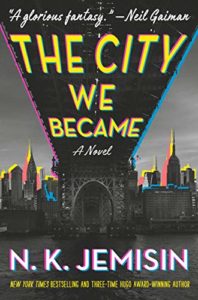
“The City We Became by N.K. Jemisin. More terrific sci-fi with a theme that is spot on for today’s crisis— it includes both an infection and riff on the problem of police violence in a multicultural city but, as with all of her work, politics never get in the way of a great story. Machiavelli: The Art of Teaching People What to Fear by Patrick Boucheron. A nuanced portrait of a complex author. The Other End of the Line by Andrea Camilleri. You can’t go to Sicily right now, but this is the next best thing. The Book of Dust by Phillip Pullman.
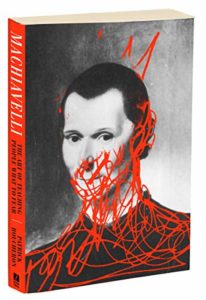
“A few great TV shows: Watchmen, His Dark Materials, Star Trek: Picard, The Mandalorian (a spaghetti western in a galaxy far, far, away. Plus, Baby Yoda.), The Good Place, Black Mirror. I don’t do blogs much but I do like podcasts on a long drive: The Hidden Brain, Revisionist History, Invisibilia. Also a couple vblogs — Talking Watches on Hodinkee— if you like watches, modern or vintage, these are your people. The Armoury—a menswear store in NYC has started a good video series on good tailoring and classic style.
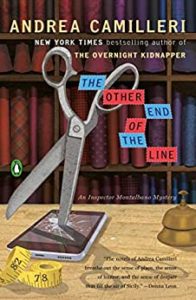
“May I also point out that now is a great time to get into something you never had time for before. For me, it’s opera: I had never mustered the courage and money to go when it was offered live. I will when I get the chance again, but in the meantime, the Met Opera channel has an excellent selection, you can turn on the subtitles and it will not take long for you to understand why this is not elitist trifle but popular entertainment in more cultured societies, It’s a pricey subscription but a lot less than a ticket to a live performance and of course goes to the good cause of keeping the fine arts alive.
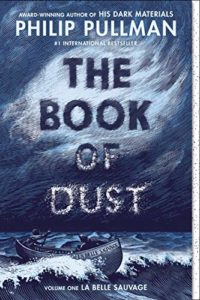
For the uninitiated: start with Mozart: The Marriage of Figaro is laugh out loud funny satire and of course, musically brilliant; the Magic Flute is great fun as well. For something moving and transcendent, you can’t go wrong with Verdi: La Traviata and Aida. Bizet’s Carmenis another sure to please classic. It’s worth it just to have context for all of those famous songs you’ve heard so often. SF Opera streamed a brilliant Faust, which I think is still on their website for free. SF Jazz is also live-streaming shows every Friday night. I think you have to be a member, but again, it’s a worthy investment in the arts,” Ford says.
Robert W. Gordon, Professor of Law, recommends The Light That Failed: Why The West Is Losing The Fight For Democracy by Ivan Krastev & Stephen Holmes and The Mirror And The Light by Hilary Mantel
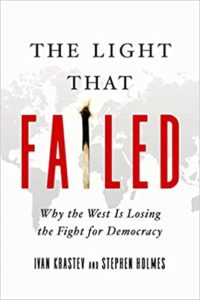
When the Iron Curtain came down in 1989, many people thought that the countries in the Soviet Union and its Eastern European satellites would adopt Western European and North American models of liberal capitalist democracy. Instead many of those countries have rejected the Western models and turned toward authoritarian populist regimes, some of them corrupt kleptocracies. Krastev and Holmes locate the backlash against Western models in the savage inequalities generated by market-oriented reforms and, even more, in the burning resentments provoked by Western arrogance and condescension. The book is brilliantly written and very persuasive.
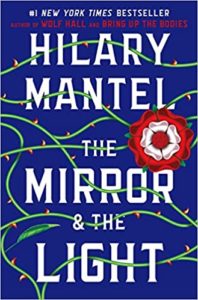
Hilary Mantel’s The Mirror And The Light is the third and final volume in her extraordinary trilogy of novels on the interior monologues of Thomas Cromwell, Henry VIII’s canny advisor, facilitator of the King’s serial marriages and separation from the Church of Rome, and architect of administrative government and effective public finance. The third book is not quite as compelling as the first two (Wolf Hall and Bring Up The Bodies), but Mantel’s shrewd, perceptive, Machiavellian Cromwell is such an interesting figure that you have to read it all the way through to its inevitable conclusion.
William B. Gould IV, Charles A. Beardsley Professor of Law, Emeritus, recommends American Poison: How Racial Hostility Destroyed Our Promise by Eduardo Porter, 24: Life Stories and Lessons from the Say Hey Kid by Willie Mays, and The Great Leveler: Violence and the History of Inequality from the Stone Age to the Twenty-First Century by Walter Scheidel.
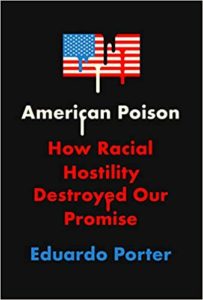
American Poison: How Racial Hostility Destroyed our Promise by Eduardo Porter who, along with David Leonhardt, is in my view, one of the best writers in The New York Times.
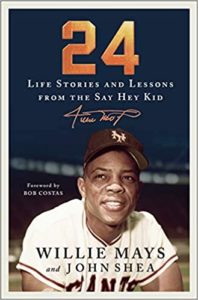
I’m also reading 24: Life Stories and Lessons From the Say Hey Kid by Willie Mays, who spoke in my sports law seminar 20 years ago and the San Francisco Chronicle’s fine reporter, John Shea. Finally, The Great Leveler by Walter Scheidel is worth reading.
Hank Greely, Deane F. and Kate Edelman Johnson Professor of Law, recommends The Great Influenza by John M. Berry, My Promised Land by Ari Shavit, Say Nothing by Patrick Radden Keefe, and Good Omens by Neil Gaiman and Terry Pratchett
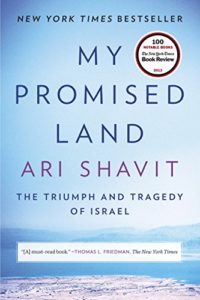

“During the pandemic, in lieu of other exercise options, I’ve been walking about two hours a day, listening to books the whole time. I’ve heard many good things but I’ll recommend four. A warning – three of them are fairly depressing but the fourth is great fun.
“John M. Berry’s, The Great Influenza, is an exhaustive account of the 1918-19 flu epidemic. Maybe it will only appeal to biomedical nerds, but I loved it. And its epilogue (from 2005) on ‘lessons to learn’ was entirely ignored with Covid-19. Ari Shavit’s, My Promised Land, is a personalized history of Israel from 1897 (when the author’s English Jewish ancestor first saw Palestine) through 2013. It’s beautifully written and hard-hitting: it hits hard at all sides. Patrick Radden Keefe’s, Say Nothing, is a compelling history of The Troubles in Northern Ireland from about 1969 through 2018, wrapped around a disappearance. Both books left me with deeply unsettling questions about power, morality, minority/majority relations, and the life span of community hatreds.
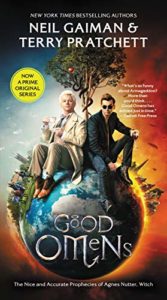
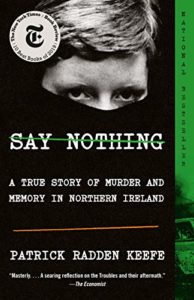
“Good Omens, on the other hand, by Neil Gaiman & Terry Pratchett, is about the Apocalypse, as depicted in Revelations and other places, complete with Four Horsemen, a hell hound (named ‘dog’), a witch, a witchfinder army—plus an angel and a demon as best friends. It was made into an excellent miniseries a few years ago, but the book is even better. I promise it will be the funniest apocalypse you will ever experience—and unless things improve substantially between when I write this in early June and when you read this, we all will need some laughs,” says Greely.
Erik Jensen, Professor of the Practice of Law and Director of Rule of Law Program, recommends Good Economics for Hard Times by Abhijit Banerjee and Esther Duflo. Jensen also recommends the 1967 film Guess Who’s Coming to Dinner
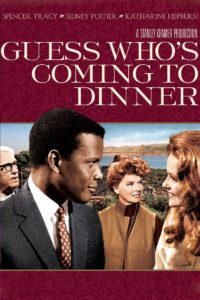
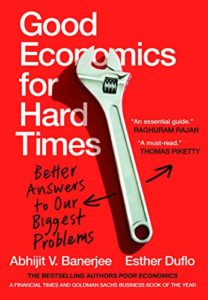
“If the US is at an inflection point — and it certainly seems that is the case — then one of the best books to read this summer is Banerjee and Duflo’s new book, Good Economics for Hard Times. With clear-eyed evidence-based analysis, the two Nobel Laureate economists tackle some of the most difficult challenges of our times — prejudice, inequality, tribalism, immigration, job losses, and climate change. And they do so in plain English. In his blurb for the book, Cass Sunstein got it right: ‘If you read one policy book this year — heck, this decade — read this one.’
“I watched Guess Who’s Coming to Dinner again a couple of nights ago. I think that this 1967 movie is good to see in today’s context. How far we’ve come, or not, in race relations in America,” says Jensen.
Michelle Mello (BA ’93), Professor of Law, recommends When We Do Harm: A Doctor Confronts Medical Error by Danielle Ofri and The Teenage Brain: A Neuroscientist’s Survival Guide to Raising Adolescents and Young Adults by Frances E. Jensen
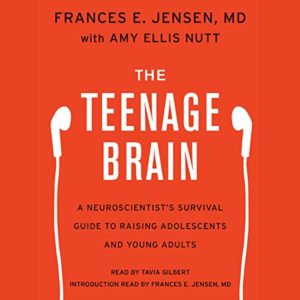
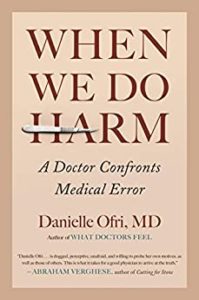
“When We Do Harm: A Doctor Confronts Medical Error — a physician-writer’s compelling account of why error persists in medicine and the consequences for patients and healthcare providers.
“The Teenage Brain: A Neuroscientist’s Survival Guide to Raising Adolescents and Young Adults — a fascinating tour into the lopsided upgrades of brain function that cause feelings to swamp rationality for teens. It had me asking, about my own adolescence, ‘Why didn’t anybody tell me??’” Mello says.
Curtis J. Milhaupt, William F. Baxter-Visa International Professor of Law, also recommends Say Nothing: A True Story of Murder and Memory in Northern Ireland by Patrick Radden Keefe, and Milhaupt recommends Dark Towers: Deutsche Bank, Donald Trump, and an Epic Trail of Destruction by David Enrich
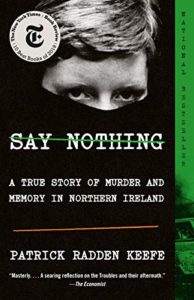
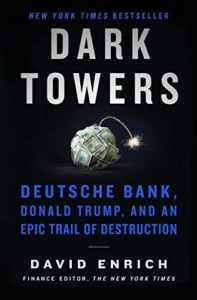
“Say Nothing: A True Story of Murder and Memory in Northern Ireland, — Gripping investigative reporting in an intensely character-driven, street-level account of the Troubles.
“Dark Towers: Deutsche Bank, Donald Trump, and an Epic Trail of Destruction — The title says it all (but read it anyway!),” Milhaupt says.
Lisa Larrimore Ouellette, Associate Professor of Law and Justin M. Roach, Jr. Faculty Scholar, recommends The Warmth of Other Suns by Isabel Wilkerson
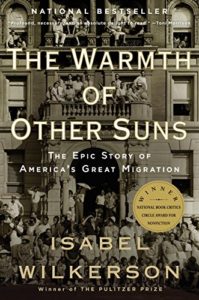
From the publishers: In this epic, beautifully written masterwork, Pulitzer Prize–winning author Isabel Wilkerson chronicles one of the great untold stories of American history: the decades-long migration of black citizens who fled the South for northern and western cities, in search of a better life.
From 1915 to 1970, this exodus of almost six million people changed the face of America. Wilkerson compares this epic migration to the migrations of other peoples in history. She interviewed more than a thousand people, and gained access to new data and official records, to write this definitive and vividly dramatic account of how these American journeys unfolded, altering our cities, our country, and ourselves.
With stunning historical detail, Wilkerson tells this story through the lives of three unique individuals: Ida Mae Gladney, who in 1937 left sharecropping and prejudice in Mississippi for Chicago, where she achieved quiet blue-collar success and, in old age, voted for Barack Obama when he ran for an Illinois Senate seat; sharp and quick-tempered George Starling, who in 1945 fled Florida for Harlem, where he endangered his job fighting for civil rights, saw his family fall, and finally found peace in God; and Robert Foster, who left Louisiana in 1953 to pursue a medical career, the personal physician to Ray Charles as part of a glitteringly successful medical career, which allowed him to purchase a grand home where he often threw exuberant parties.
Wilkerson brilliantly captures their first treacherous and exhausting cross-country trips by car and train and their new lives in colonies that grew into ghettos, as well as how they changed these cities with southern food, faith, and culture and improved them with discipline, drive, and hard work. Both a riveting microcosm and a major assessment, The Warmth of Other Suns is a bold, remarkable, and riveting work, a superb account of an “unrecognized immigration” within our own land. Through the breadth of its narrative, the beauty of the writing, the depth of its research, and the fullness of the people and lives portrayed herein, this book is destined to become a classic.
Deborah A. Sivas, Luke W. Cole Professor of Environmental Law, recommends The Plague by Albert Camus
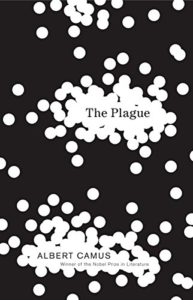
“As we retreated in March to ‘shelter in place,’ I dug out, dusted off, and reread my dog-eared copy of The Plague by Albert Camus. It was as good in 2020 as I recall from high school. Better, actually. Generally considered an allegorical novel about the Nazi occupation of France during World War II, The Plague is also a literary – and achingly literal – exploration of the individual and societal response to existential threats beyond our control – in this case, bubonic plague. Unlike most of today’s action-packed sci-fi contagion genre, Camus quietly plumbs the range and depth of human emotion as his characters come to terms with the reality of a city in seemingly endless lockdown. Whether our demons are an invading army or an invading pathogen, the novel’s animating theme – the fragility of the world we have built – is a timeless one,” Sivas says.
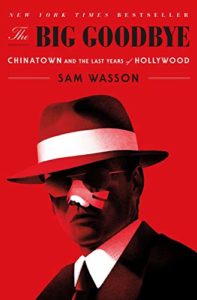
Barton H. “Buzz” Thompson, Jr., Robert E. Paradise Professor of Natural Resources Law, recommends The Big Goodbye by Sam Wasson, Wilson by A. Scott Berg, Warren G. Harding by John Dean, Coolidge: An American Enigma by Robert Sobel, and FDR by Jean Edward Smith
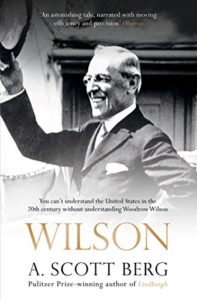
“A water expert and the child of an Academy Award winner, I long ago added Roman Polanski’s Chinatown to my personal pantheon of great movies. But the story of Chinatown’s making, as told by Sam Wasson in The Big Goodbye, is almost as compelling and entertaining as the movie itself. I’m not a great fan of Hollywood books, but The Big Goodbye transcends the genre. In part a story of the creative and conflict-riddenprocess by which Chinatown grew from an overstuffed and confused screenplay into one of the great movie storylines of all time, and in part snapshot biographies of the key people involved in the movie’s making (Polanski, Jack Nicholson, Robert Towne, and Robert Evans), I found the book endlessly interesting (even if the prose is occasionally a bit turgid).
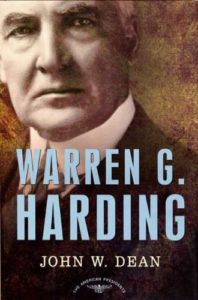
“While taking enjoyable detours through detective fiction and books such as The Big Goodbye, I also have continued my goal to read biographies of all of the Presidents.
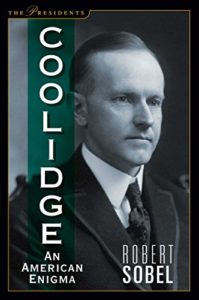
“Recent reads have included Wilson, by A. Scott Berg (a better biography of Wilson the academic and governor than of Wilson the president); Warren G. Harding, by John Dean (who admires Harding for reasons I ultimately found convincing); Coolidge: An American Enigma, by Robert Sobel (I’m afraid that no one, including Sobel, has yet figured out how to make Coolidge interesting); and FDR, by Jean Edwards (a great biography, but one that never quite fleshes out FDR as a human),” Thompson says.
